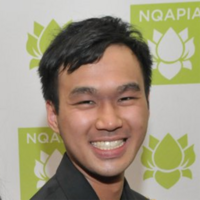The Transformative Power of an Equity Lens
November 1, 2019
This summer, among the verdant hills of Vermont, I had the pleasure to work with the incredible team at the Institute for Sustainable Communities (ISC), a nonprofit dedicated to advancing climate mitigation and adaptation action through trainings and capacity building for industry, governments, and local communities in the US and abroad. I joined the organization at a pivotal transition as leadership and staff were reorienting their strategy to embody greater equity in their work. I learned that not only has ISC dramatically diversified its staffing from one person of color to almost half of its staff, they also expanded their hiring search, bringing in talent from across the US. As a result, the work environment shifted from a traditional, centralized office to a digital, distributed network. Throughout this process, ISC learned that in order to embody equity, the organization needed to be more flexible, allowing staff to live in their preferred communities, often in proximity to the locations of ongoing projects. The co-location of staff and project had the added bonus of deeper community engagement, with staff mobilizing local knowledge through personal and professional connections. Thus, equity was not just about bringing diverse perspectives into project implementation, it also enhanced ISC’s effectiveness around community-centered work.
Equity was also a major theme at ISC’s all-staff retreat that gathered both the US-based team and several members from the China and India team. In the team discussions, we discussed strategy on future work for the organization as well as how to operationalize equity in both U.S. and international contexts. During the brainstorming sessions, I learned a key insight into equity in climate change in the conversation around “vulnerable populations.” I came to understand that historical, structural discrimination plays a vital role in shaping “vulnerable populations” that is not consistently highlighted nor do most climate solutions address these institutional inequities. For example, the Social Vulnerability Index features income, educational attainment, and home ownership as key qualities that inform resilience. Yet these metrics only capture a community’s current situation and fail to acknowledge the effect of redlining and disinvestments in public schools that contributed to the creation of the community’s vulnerability. As a result, tools like the Social Vulnerability Index only serve to point out disadvantaged populations, they do not have any meaningful impact on the type of solutions proposed to remedy the injustices. One director at ISC suggested that income inequality is the strongest indicator of a community’s vulnerability and that ISC should be more engaged in projects that build community wealth. Moreover, these economic development projects should be community-driven and community-owned while simultaneously achieving sustainability and climate goals. A “vulnerable population” does not mean that the community has no power or other assets they can leverage to improve their circumstances. I was intrigued by this line of inquiry and upon returning to school, I am studying theories of economic development and organizing my final project to address the intersection of climate adaptation and community economic prosperity.
My experience at ISC shifted my own thinking regarding climate adaptation in state and local government. Before this, much of my exposure to climate adaptation has focused on physical infrastructure, from designing more effective sea walls to engineering more climate-resilient buildings. However, my time and research at ISC illuminated how equity and social dynamics are as important to good climate policy as investments in clean energy. Without proper consideration for the impacts on community and a deep understanding of the community’s lived experiences, even the best climate policies will never be implemented or have maladaptive consequences, as we saw time and again with efforts like a national cap and trade and carbon taxes fail repeatedly and the dangers of green gentrification. Fundamentally, I believe that climate change and adaptation represent an opportunity to reshape society to be more just and sustainable. And as an aspiring policymaker, I now realize that it can only be accomplished when equity and social justice is infused in every decision and policy choice, when community voices are uplifted and empowered to align their community interests with environmental goals.
About Jeffrey Wong
